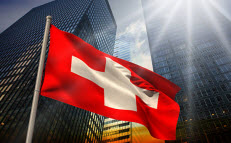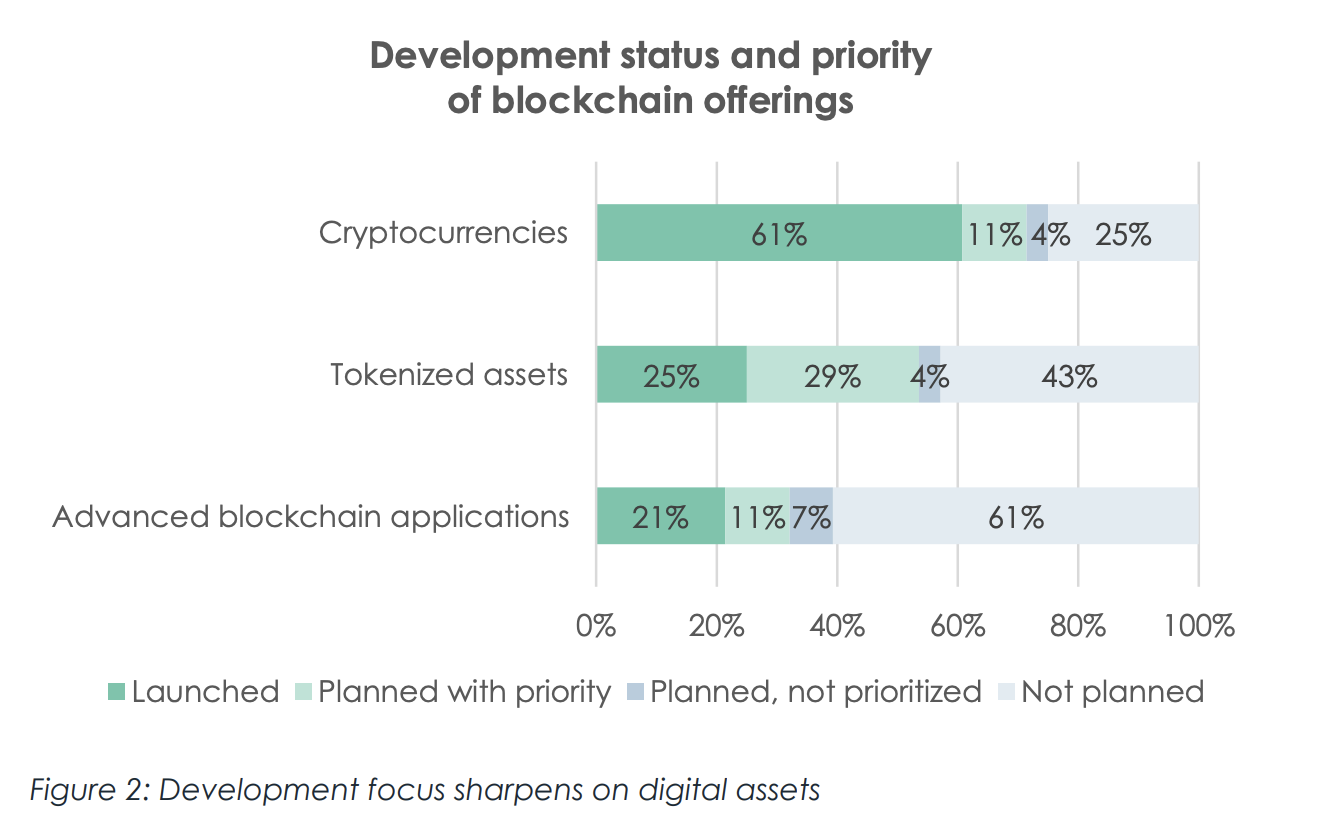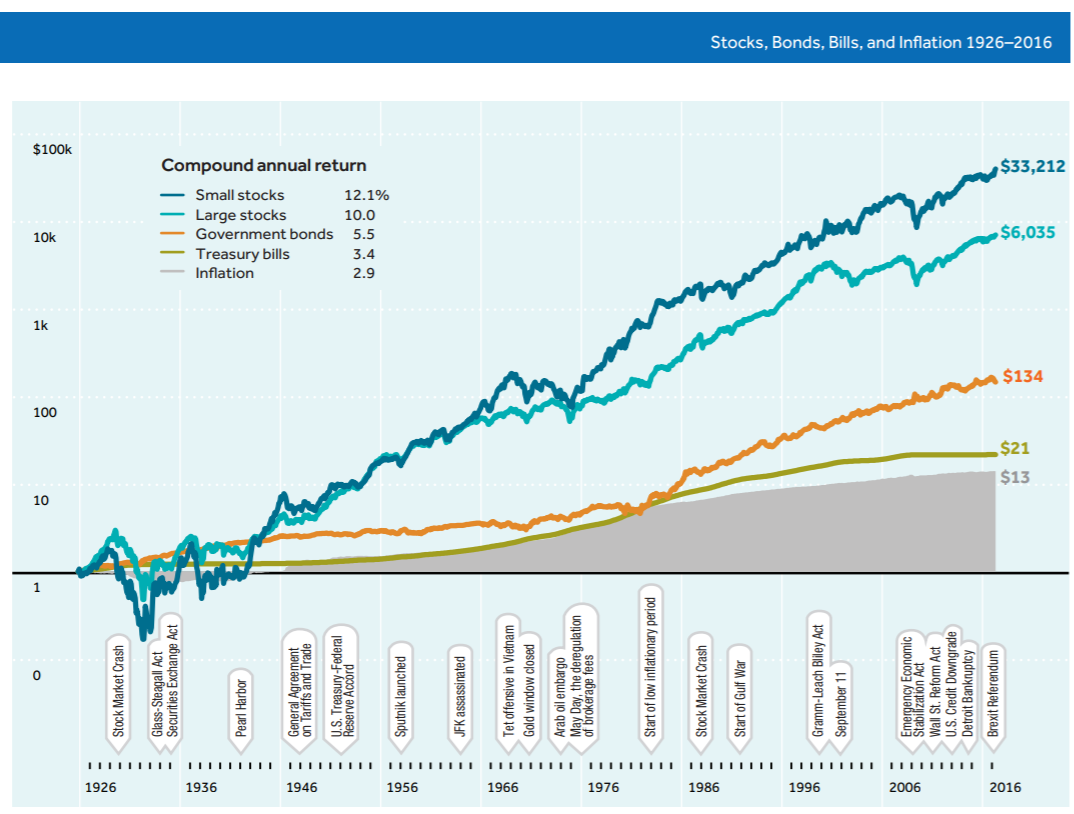Authored by Marcia Christoff-Kurapovna via The Mises Institute,
“Switzerland will have the last word,” wrote Victor Hugo in the late 19th century.
“It possesses one of the most perfect forms of government in the world.” A contemporary of his, Frederick Kuenzli, a scholar of the Swiss Army, boasted: “No purer type of Republican ideals, no more fixed and devoted adherence to those ideals can be found in all the world than in Switzerland.”
 On many levels, there is reason to believe that, indeed, Switzerland remains a unique oasis of rationality and intelligence in the ocean-wide bloodbath that is contemporary Western fiscal and social self-sabotage. On the other hand, there is the Swiss National Bank — the central bank — that oddly appears to be encouraging the same monetary policy dance-with-death that has tripped up the country’s masochistic neighbors.
On many levels, there is reason to believe that, indeed, Switzerland remains a unique oasis of rationality and intelligence in the ocean-wide bloodbath that is contemporary Western fiscal and social self-sabotage. On the other hand, there is the Swiss National Bank — the central bank — that oddly appears to be encouraging the same monetary policy dance-with-death that has tripped up the country’s masochistic neighbors.
How viable yet is the Swiss element in that which we still admire as the nation of Switzerland? First the good news:
Direct democracy is alive and kicking: No mere opinion poll, the power and vibrancy of the referendum — one that can be launched by any local who can gather 100,000 signatures in support — constitutes one of the most impressive displays of true citizen-republicanism that there is. There is an upcoming vote on the Swiss Sovereign Money Initiative — a movement to obstruct financial speculation; recent referendums that were voted into law include a phasing out of nuclear energy to be replaced by renewables, and easier naturalization of third-generation immigrants.Cash is still very much king and carrying around personal debt is a social blackmark. In fact, the love of cash has a counter-cultural dimension to it as an anti-State, anti-globalist, anti-anti-privacy gesture intended to underscore the Swiss love of freedom. The Swiss will use huge denominations (the 1000-franc note, for example) like they use pocket change to pay for everything from monthly utility bills to buying a sandwich. Professionals regularly will pay their cantonal taxes by showing up at municipal offices and unrolling a wad of bank notes. No one bats an eye. The country’s long tradition of banking secrecy has instilled a love for the untraceable privacy conferred by cash notes and coins. In fact, so serious is the Swiss demand for privacy that the federal government appoints its own public data security officer and banking secrecy remains fully in force for domestic customers,
And then there is Switzerland the banking superpower. More than any other banking system anywhere, Swiss bankers have developed the art of learning from history. From its historic position at the crossroads of and as a safe-haven from the experience of world war, hyperinflation and political upheavals, Switzerland has cultivated that legendary conservatism which ensures that Swiss bank investments still are of the highest quality. The high standard of liquidity remains in place.
However, The creeping signs of The State are settling upon the Alpine paradise. It may come as no surprise that a central bank figures at the center of this. The strange case of the Swiss National Bank (SNB) is a phenomenon to be followed closely, if Switzerland is not to lose sight of what it means, and has always meant, to be Swiss.
At first glance, the SNB appears to be the last of the bankers’ banks. The SNB is not powerful. It is not owned by the Swiss government. It is completely independent, as expressed in Article 6 of the National Bank Act, which explicitly prohibits the bank from seeking or accepting instruction from federal authorities. Instead, the SNB has the legal status of a special-statute joint-stock company. Under Article 11, it is not allowed to acquire government bonds from new issues and monetary policy is not bankrolled by the SNB as a central bank. The SNB has private shareholders so it must report earnings like a regular company. (The Swiss Federal Government owns no shares in the bank). It has almost 640 billion francs in its currency reserves; the cantons together own 45%; a further 15% is owned by cantonal banks and the remaining 40% by private individuals and companies. But as good as all of that sounds:
Money printing fever has hit: When the SNB turned a record-setting loss into a massive profit in 2016, it was the result of the bank’s vast portfolio of U.S. stocks amounting to some $60 billion, with investments in such companies as Google parent-company Alphabet; Apple and Facebook, among others. The bank reported profits of 24 billion Swiss francs (23.4 billion USD for 2016), one of its best years ever. (This was a major turn-around from 2015, when it recorded its biggest loss in history of 23 billion francs).
Yet James Grant, of the legendary Wall Street newsletter Grant’s Interest Rate Observer, is having none of it. As he told the Swiss economic journal Finanz und Wirtschaft last August, this buying spree consists of francs created from “the thin alpine air where the Swiss money grows”. He adds: “All this is done with a tab of a computer key. And then the SNB calls its friendly broker – I guess UBS – and buys the ears off of the US stock exchange. All of it with money that didn’t exist. That too, is something a little bit new.”
Then there are negative interest rates…The Swiss National Bank imposed sub-zero rates in early 2015, prompting many lenders including UBS Group and Credit Suisse Group to pass on the burden – it is not known how much– to cash-rich clients like asset managers and big companies. Now, cash hoarding is going like never before, a nice problem for the SNB’s “monetary policy” if there ever was one, effectively nullifying the effect of negative rates. Swiss insurance companies are having a field day as customers pile in to buy policies to protect their cash from theft or damage given the increasing demand for cash storage.
To top it all off, the Swiss are selling off their gold. Gold holdings had been a standard par excellence of the Swiss. Over the course of the 20th century, the Swiss accumulated large gold reserves and ran a steady current account surplus. This placed the SNB in opposition with the International Monetary Fund, which Switzerland did not join until 1992. Thereafter, membership meant weaning the Swiss franc off its gold standard and in 1999, Switzerland became the last industrial nation to go off that standard. At that time, the Swiss National Bank held some 2,600 tons of gold, representing about 41% of its total currency reserves. By the end of 2008 its gold holdings had dwindled to just 21% of reserves. And as of August this year, they had fallen to just 7.9%. The raw tonnage has fallen over that time to just 1,040 tons, a 60% decline from 1999. The highly-anticipated Swiss Gold Initiative of 2014 — an initiative that called for the Swiss central bank to hold at least 20% of its assets in gold, prohibit selling any gold in future, and bring back all its gold reserves to Switzerland — failed.
It is to Switzerland many in the West turn today for a model of solid fiscal conservatism, love of individual privacy, subordinate central government and true community-based freedom, as if a beacon light in a trans-Atlantic fog of warfare and welfare state indoctrination. One hopes the SNB and its adherents understand the folly of sabotaging the great success that their country has enjoyed by sticking to one fundamental principle above all: that of keeping Switzerland Swiss—and with apologies to no one.
Tags: Apple,Banking in Switzerland,banks,Business,Credit Suisse,economy,federal government,Finance,fixed,Google,hyperinflation,Insurance Companies,International Monetary Fund,Mises Institute,Monetary Policy,money,newslettersent,None,Swiss Franc,Swiss Government,Swiss National Bank,Switzerland,UBS,Vollgeld






























1 comments
Stefan Wiesendanger
2017-08-29 at 19:37 (UTC 2) Link to this comment
Mrs Christoff-Kurapovna’s criticizes three elements of SNB policy:
1. The inflation of its balance sheet (money printing)
2. Negative interest rates
3. The selling of a large portion of its gold in the years following 2000
I will argue that all three elements of policy are reasonable choices and in fact, related. In light of the argument presented below, the SNB is not betraying the Swiss values of solidity and dependability. Quite the contrary, the SNB is probably the most responsible and conservative actor within the Swiss economic and political system, and certainly within the global financial infrastructure.
1. Money printing:
Mrs Christoff-Kurapovna cites James Grant who rants about the SNB creating Swiss Francs “out of thin alpine air” with which it then buys US stocks. I greatly value Mr. Grant’s opinions on the US but he does miss the point on the Swis situation. I contend that “buying productive assets” with “money created out of thin air” is what actually happens when an American Private Equity firm takes over a European company.
The SNB does nothing of the kind. Rather, the new Swiss currency that swells its balance sheet comes into existence through a large current-account excedent earned by the Swiss through hard work and saving it all. After the Great Financial Crisis, who can blame them for bringing these savings home and keeping them liquid rather than spending them?
In this situation of a continuous inflow of savings, all the SNB does is to accommodate this flow as a (temporary) custodian: it takes the foreign liability on the asset side of its balance sheet and hands the Swiss savers new Swiss Francs as a substitute for their claim vs. abroad. In the old days, the SNB would have bought gold instead of government bonds and shares, but the mechanism is still the same. The rather surprising conclusion is that the Swiss monetary system still very much works like in the times of the gold standard: base money is created through real savings and not through debt. This is quite a contrast when compared to QE, is it not?
2. Negative Interest
When the balance sheet of the SNB did not stop growing, the SNB started charging negative interest on central bank deposits. Is this not irrational or immoral? No, it is not. It is a rather gentle reminder that the SNB can only be a temporary custodian of foreign liabilities. The negative interest is a sort of safe-storage fee and, more importantly, a fee for the insurance against loss of value. It is up to Swiss savers to recycle the foreign assets they acquired through savings abroad.
3. The selling of gold by the SNB post-2000.
The SNB did not go off the gold standard because it wanted to or because it unnecessarily yielded to foreign pressure. When the de-monetisation of gold was jointly decided by the cartel of the major central banks, the long-term value of gold did become more uncertain. At the same time, holding gold became less practical because to a large extent, a central bank holds reserves to settle debts with other central banks. What if other central banks did not accept gold any more as a means of settlement? The responsible thing to do was therefore to diversify the assets away from the privously almost 100% gold.
Still, the amount of gold the SNB keeps is by far the largest both per capita and in relation to GDP. The decrease of the share of gold in reserves is entirely due to the rapid growth of the SNB balance sheet, not to the reduction of gold holdings.
Finally, the debate about the most adequate asset split of the SNB’s FOREX holdings remains open. After all, about 80% of the FOREX assets of the SNB are held in foreign government bonds and only 20% in real assets (i.e. shares). But also in this case, the SNB can be counted on to find reasonable compromise between liquidity, return and risk.
In summary, the SNB acts almost boringly at the conservative fringe of all Central Banks. Ever since the Financial Crisis in 2007, it fulfils the unwanted role of a temporary custodian of Swiss claims against foreign entities, effectively shielding the Swiss owners of these claims from the currency risk. It charges a fee for its services which is the negative interest. Even after selling 2/3rds of its gold, it maintains one of the largest stocks of monetary gold worldwide, certainly per capita, but diversified its assets after the de-monetization of gold by the world’s major Central Banks.
***